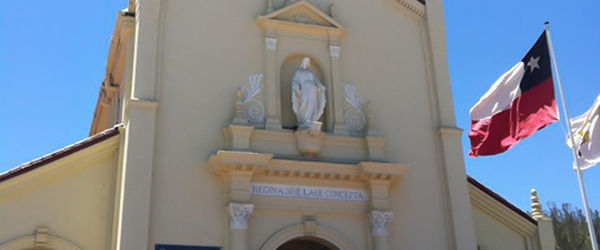Dear American seminarians:I know you're busy starting this semester's numerous classes in Scripture, theology, liturgy, homiletics, history, pastoral counseling, music, religious education, Hebrew and Greek.To be sure, you'll need those courses to be an effective and knowledgeable member of the clergy. Enjoy your time in seminary because it's unlikely that you will ever again have an opportunity for such in-depth studies.But there's something else you'll need to learn in order to be an effective minister, rabbi or chaplain: Americans are undergoing severe economic, political, cultural and, yes, religious turmoil and shock. You'll need to know how to respond.I am neither an optimist nor a pessimist, but forever cursed to be a pragmatist. Equipped with that prism, it seems clear the pain will still be there when you complete your training. So it's best to figure out now how you're going to deal with it.As clergy, you will need to comfort and console a polarized nation that is either trapped in a false nostalgia or despondent about the future.For more than 230 years, American clergy continually faced a series of national crises with confidence and a profound conviction in what some call "American exceptionalism." No matter how bad things got, we have always maintained a bedrock conviction that America is somehow "different" from our global neighbors.That belief has survived wars at home and abroad; domestic conflicts over race, ethnicity and religious bigotry; struggles to improve the plight of workers, women, immigrants and minorities; and, most recently, catastrophic acts of terrorism.Nearly a century ago, haughty Americans weary of world war believed they could retreat into splendid isolation behind the safety of our oceans, safely secluded from less blessed nations. Some still feel that way, but it's as naive a strategy now as it was then.A generation later, following the end of World War II, America tried something else, reaching out in an act of morality-laced self-interest to help rebuild our enemies. Basking in a moment of superpower glory, there was nothing America couldn't do.While we still cling to that post-war optimism, what's changed is that too many Americans now see the luster fading from our "shining city on a hill." There are cracks in the walls around our New Jerusalem. It's too much of a burden, they say, for one nation to carry.Perhaps, they wonder, our best days are behind us, not ahead.Some people still yearn for a vanished Eden of certainty and world supremacy. Others think we'll never get it back. As clergy, you will need to comfort and console a polarized nation that is either trapped in a false nostalgia or despondent about the future.As clergy, you will need to teach the lessons of Jeremiah, the Hebrew prophet who preached a realistic hope to a once proud people even as their beloved Jerusalem fell into ruin.As clergy, you will need to be modern Isaiahs who offer authentic faith and consolation in the face of despair. You will need to be modern Ezras and Nehemiahs who taught their dazed people to reconstruct their faith and national identity.Even in the face of deficits, discord, division, and depression, you must be like Zechariah who urged his fellow Israelites to be "prisoners of hope." Or a Joshua, who confidently preaches: "Be strong and of good courage."It is easy to be a minister or rabbi in a sunny, upbeat era. But any veteran clergyperson will tell you that doesn't last forever. Now's the time to find your own inner spiritual strength to provide realistic hope and comfort for a people living in the shadows of self-doubt. Rabbi A. James Rudin, the American Jewish Committee's senior interreligious adviser, is the author of the recently published "Christians & Jews, Faith to Faith: Tragic History, Promising Present, Fragile Future."

